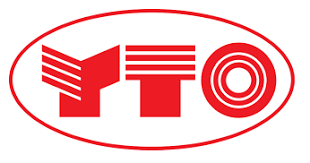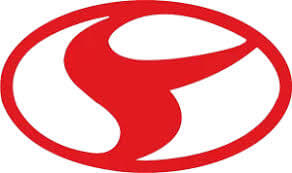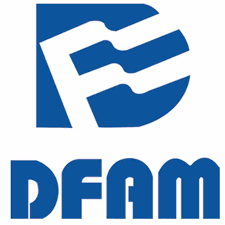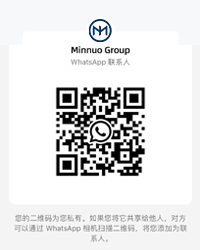Over the past decade, China has transformed from a low-cost equipment producer into a global farm tech innovator. Today, Chinese manufacturers are not only offering affordable machinery but also integrating smart technologies such as RTK navigation, IoT connectivity, and AI-driven systems. This article presents a ranked and reviewed guide to the top Chinese farm machinery manufacturers in 2025, based on product range, innovation, service infrastructure, and global reputation.
With rising demand for agricultural modernization across Africa, Southeast Asia, Latin America, and Eastern Europe, international buyers are increasingly asking:”Which Chinese manufacturers are truly trustworthy, export-ready, and future-proof?”As markets move beyond basic mechanization toward smart farming, selecting the right partner from China has become a strategic priority for farms, cooperatives, and dealers alike.
In the following sections, we will compare top brands across certifications, technology levels, after-sales capabilities, and value propositions. Whether you are looking for cost-effective solutions, smart farming integration, or OEM/ODM flexibility, this guide will help you navigate the evolving landscape of Chinese agricultural machinery—and make smarter purchasing decisions for 2025 and beyond.
Contents
- 1 I. Market Overview: China’s Role in Global Agricultural Equipment
- 2 II. Key Evaluation Criteria for Ranking Chinese Farm Machinery Manufacturers
- 2.1 ✅ 1. Product Range & Specialization
- 2.2 ✅ 2. Global Export Certifications (CE, EPA, SASO, SONCAP, etc.)
- 2.3 ✅ 3. Smart Technology Integration (GPS, Automation, Remote Diagnostics)
- 2.4 ✅ 4. After-Sales Infrastructure (Manuals, Parts Depots, Online Support)
- 2.5 ✅ 5. OEM/ODM Capability & Customization
- 2.6 ✅ 6. Global Dealer Presence & Reputation
- 2.7 ✅ 7. Price vs. Performance Ratio
- 3 III. Top 7 Chinese Farm Machinery Manufacturers to Watch in 2025
- 4 IV. Common Concerns When Sourcing from China (and How Top Brands Solve Them)
- 5 Conclusion
I. Market Overview: China’s Role in Global Agricultural Equipment
In the past decade, China has rapidly evolved from being a manufacturer of basic farming tools to a global powerhouse in agricultural machinery and smart farming systems. This transformation is reshaping how international buyers view Chinese brands, not only in terms of cost but also in innovation, scalability, and service support.
1. China as the World’s Largest Producer of Agricultural Machinery
Today, China holds the title of being the largest producer of agricultural equipment by unit volume globally. This leadership is evident in:
The vast range of equipment manufactured, from simple hand tractors to high-horsepower 4WD units;
High production capacities that allow competitive pricing and fast scaling;
A deep industrial supply chain, covering engines, gearboxes, precision castings, and smart electronic modules.
✅ Impact: Buyers can access cost-effective, diverse, and increasingly tech-upgraded machinery for different farm scales—from smallholders in Africa to large plantation owners in Latin America.
2. Transition from Basic Tools to Smart Farming Systems (RTK, IoT, AI)
In response to domestic modernization and global farming needs, Chinese manufacturers are moving aggressively into smart agriculture technologies:
RTK-based autonomous driving: Enabling sub-2.5 cm accuracy in plowing, sowing, and spraying
IoT-enabled fleet management: Offering real-time monitoring of tractor performance, fuel use, and field progress
AI-driven crop health detection: Integrated into sprayers and harvesters to optimize resource use
Key players like MINNUO, Foton Lovol, and Zoomlion are leading this charge, making advanced technology more affordable than Western counterparts.
✅ Impact: Global buyers seeking smart farming entry points now see China not just as a manufacturing hub but as a technology partner.
3.Strong Government Support for “Smart Agriculture” Policies
The Chinese government’s “Smart Agriculture” initiatives have catalyzed industry innovation:
Offering subsidies and R&D funding for automation, AI, and eco-friendly machinery;
Setting national targets for mechanization rates in rice, wheat, corn, and specialty crops;
Investing in cross-border agricultural collaborations under the Belt and Road Initiative (BRI).
✅ Impact: Exported machines often embed smart-ready features by default, as manufacturers align with both domestic upgrades and export market expectations.
4. 2024–2025 Export Focus: Key Target Regions
In 2024–2025, Chinese agricultural machinery exports are projected to expand aggressively into:
Africa: Nigeria, Kenya, Egypt, Tanzania (demand for mid-sized tractors and harvesters)
Southeast Asia: Vietnam, Thailand, Indonesia (growth in precision paddy farming)
Latin America: Brazil, Peru, Argentina (need for high-HP tractors and smart crop solutions)
Eastern Europe & Central Asia: Uzbekistan, Kazakhstan (government-driven mechanization programs)
Chinese brands are setting up regional spare parts depots, local training centers, and dealer networks to serve these markets more efficiently.
✅ Impact: International buyers gain easier access to parts, training, and compliance-ready models (CE/EPA/SASO/SONCAP certified), closing previous gaps in service trust.
China’s role in global agricultural equipment is no longer about volume alone.
It’s about delivering smarter, more adaptable, and service-backed solutions at accessible prices.
II. Key Evaluation Criteria for Ranking Chinese Farm Machinery Manufacturers
When evaluating the best Chinese agricultural machinery manufacturers for 2025 and beyond, it’s not enough to simply look at output volume or brand visibility.
A holistic view is essential—balancing product capability, export-readiness, technological innovation, service reliability, and long-term value.
Here are the seven critical dimensions we used to rank and select top brands:
✅ 1. Product Range & Specialization
A top manufacturer should not only offer a wide range of products but also deep specialization in certain categories.
Full-line manufacturers (tractors, harvesters, planters, sprayers) can support diversified farm operations.
Specialized brands (e.g., only high-power tractors, only paddy machinery) often achieve higher quality and performance in their niches.
Buyer Tip: Match your purchase needs with the manufacturer’s core strength area, not just catalog volume.
✅ 2. Global Export Certifications (CE, EPA, SASO, SONCAP, etc.)
Export readiness is defined by compliance with international certification standards:
CE Certification (EU market safety compliance)
EPA Tier 4 / Euro V (emission standards for North America, Europe)
SASO (Saudi Arabia), G-Mark (Gulf States)
SONCAP (Nigeria)
Brands that proactively pursue these certifications:
Deliver higher trust in product quality and safety;
Ensure faster customs clearance and reduced buyer risks in target markets.
Buyer Tip: Always request copies of valid certificates when shortlisting suppliers.
✅ 3. Smart Technology Integration (GPS, Automation, Remote Diagnostics)
The future of farming is digital—and leading Chinese manufacturers are increasingly embedding:
RTK-based auto-navigation for tractors;
AI-enabled crop monitoring systems in sprayers and harvesters;
Remote diagnostics via 4G/5G telemetry modules.
This not only reduces labor costs but also improves yield and input efficiency for modern farms.
Buyer Tip: Choose brands that offer optional or built-in smart farming modules if you plan long-term farm modernization.
✅ 4. After-Sales Infrastructure (Manuals, Parts Depots, Online Support)
The machine’s price matters less if support is lacking.
Top-tier manufacturers now provide:
Multilingual manuals (English, French, Arabic, Spanish);
Regional spare parts warehouses for rapid response;
Remote training & troubleshooting support via Zoom or WhatsApp.
Brands like MINNUO distinguish themselves by building overseas service hubs and 72-hour parts delivery guarantees.
Buyer Tip: Confirm the presence of service points or depots in your region before purchasing.
✅ 5. OEM/ODM Capability & Customization
As farming practices differ globally, flexibility matters.
Leading Chinese brands offer:
OEM production (your brand labeling);
ODM services (custom machine configurations for local crops, climate, terrain);
Software localization (language packs, custom settings).
This is critical for distributors seeking private label options or governments with specific tender requirements.
Buyer Tip: Ask whether the manufacturer supports minor or major spec customization at feasible MOQs.
✅ 6. Global Dealer Presence & Reputation
A strong global footprint signals reliability.
Brands with active dealers in Africa, Southeast Asia, Latin America, and Eastern Europe are better equipped for spare parts support, warranty service, and market-specific adaptation.
Positive user feedback and case studies enhance a brand’s credibility beyond catalogs and trade show displays.
Buyer Tip: Look for manufacturers that invest in local partnerships, not just one-off exports.
✅ 7. Price vs. Performance Ratio
Finally, the balance between cost and capability matters enormously.
Cheapest isn’t always best—hidden costs like poor after-sales or low fuel efficiency can erode perceived savings.
Most expensive isn’t always necessary—some Chinese mid-tier brands now offer 85–90% of top-end performance at 60–70% of the price.
A good farm machinery brand offers:
Reasonable upfront pricing,
Long-term durability,
Low total cost of ownership (TCO) over 5–10 years.
Buyer Tip: Calculate fuel economy, maintenance intervals, and parts pricing when assessing offers—not just base machine cost.
By using these seven evaluation pillars, buyers can better identify which Chinese manufacturers are export-ready, future-proof, and investment-worthy.
III. Top 7 Chinese Farm Machinery Manufacturers to Watch in 2025
1. YTO Group Corporation (中国一拖)
Government-backed, largest by volume
Focus: Large tractors, harvesters, and diesel engines
Strong in domestic market and Belt & Road countries

2. Foton Lovol
Known for design and quality upgrades
Wide range: tractors, combine harvesters, rice transplanters
Strong in smart features (precision farming, CAN-BUS, cabin UX)

3. MINNUO Agro Machinery ⭐
Emerging tech-driven brand
Focus: smart-ready mid-sized tractors, sprayers, planters
Highlights:
Zoom-based multilingual after-sales training
CE, EPA, SASO, SONCAP certifications
Modular implements + “multi-scene adaptive” chassis
Strong OEM/ODM for dealers in Africa, Latin America, SEA

4. Zoomlion Agriculture
Originally a construction machinery giant, now pivoted into agriculture
Strength in large harvesters, autonomous tractors, smart rice planting systems
Advanced R&D for precision modules

5. World Group (World Agricultural Machinery)
Specializes in rice & wheat harvesting equipment
Dominant in Southeast Asia and China’s paddy belt
Known for durability in wet, high-humidity conditions

6. Shifeng Group
Best known for compact tractors, transporters
Price leader, basic diesel models for rural users
Strong demand in Africa and South Asia

7. Dongfeng Agricultural Machinery (DFAM)
Mid-range focus with rising international certifications
Supportive of hybrid technology and alternate fuel engines
Well-distributed in Latin America and the CIS region

How to Choose the Right Brand Based on Your Market
| Buyer Type | Best Fit | Why? |
| Budget-sensitive rural buyer | Shifeng | Lowest cost, simple repair |
| Mid-sized dealer in Africa/SEA | MINNUO | Certified, smart-ready, multilingual support |
| Government programs | YTO / Zoomlion | Stable volume, full certification, long-term supply |
| Rice-focused buyer | World Group | Specialized harvester performance |
| Smart farming operator | Foton / MINNUO | GPS, remote support, automation features |
IV. Common Concerns When Sourcing from China (and How Top Brands Solve Them)
Despite China’s rising status as a global leader in agricultural machinery, many international buyers—especially first-time importers—still have understandable concerns when sourcing farm equipment from Chinese manufacturers.
Below are five of the most frequent pain points we hear from buyers across Africa, Southeast Asia, the Middle East, and Latin America—along with proven solutions offered by leading Chinese brands like MINNUO.
1. Language Barriers
The concern:
“I can’t understand the manual, and my local operators don’t speak English—what if we can’t even start the machine?”
How top brands solve it:
✅ Provide multilingual user manuals (English, French, Spanish, Arabic, Portuguese, Russian)
✅ Offer QR code-embedded video tutorials for visual learners
✅ Deliver live support via Zoom or WhatsApp, allowing buyers to walk through installation and calibration in real time
Example: MINNUO includes localized manuals by default in each crate and schedules remote onboarding calls upon delivery.
2. Emission Compliance Issues
The concern:
“Will this tractor clear customs? My country requires EPA Tier 4 or Euro V standards.”
How top brands solve it:
✅ Develop export-specific engine variants that comply with Tier 4 / Euro V / Stage V emission norms
✅ Provide documentation packs with CO, emission test results, and third-party certification for customs clearance
✅ Partner with global testing labs like SGS or TÜV to issue verifiable CE/EPA certificates
Example: MINNUO’s export units use engines from brands like Yuchai or Yunnei with EPA certification, suitable for North Africa, Southeast Asia, and Latin America.
3. After-Sales Parts Delays
The concern:
“If something breaks, I can’t wait three weeks for parts to come from China.”
How top brands solve it:
✅ Establish spare parts depots in key export hubs like Nigeria, Kenya, and Vietnam
✅ Offer pre-shipped maintenance kits with high-use components (filters, belts, seals)
✅ Bundle every sale with a recommended service parts list to let dealers stock locally
Example: MINNUO guarantees 72-hour dispatch for Tier 1 wear parts from their African and ASEAN warehouses.
4. Branding Concerns: “Is Chinese quality reliable?”
The concern:
“Chinese machines are cheaper—but can I trust the build quality and consistency?”
How top brands solve it:
✅ Share real buyer case studies and client interviews from multiple continents
✅ Offer third-party inspection reports, CE/ISO/SONCAP certifications, and photos of quality control procedures
✅ Provide long-term warranty (12–24 months) on powertrain and structural parts
Example: MINNUO publishes side-by-side comparisons with EU/Japan machines in catalogs and emphasizes their ISO9001-certified production line.
5. Product Mismatch or Misunderstood Specs
The concern:
“I ordered for hilly terrain, but the machine was built for flat rice fields. Now it’s stuck.”
How top brands solve it:
✅ Provide OEM customization based on terrain, crops, and climate
✅ Offer pre-order configuration consultations, including tire type, clearance, implement compatibility
✅ Include training documentation and machine-specific parameter settings in export crate
Example: MINNUO exports custom “Paddy Version” and “Dryland Version” models with pre-adjusted wheelbases, hydraulic lifters, and PTO configurations.
✅ Summary Table
| Concern | Smart Solution Provided by Top Brands |
| Language gaps | Multilingual manuals, video call onboarding |
| Emissions compliance | Tier 4 / Euro V engines + certified documentation |
| Spare parts delay | Regional depots + pre-shipped kits |
| Trust in quality | CE/EPA/ISO, client references, warranty coverage |
| Product mismatch | OEM tailoring with field-specific setup guides |
In short, sourcing from China no longer means compromise—not if you’re working with brands that anticipate and solve global buyer needs.
Conclusion
Today, Chinese farm machinery is no longer defined by low prices alone—it is smart, scalable, and backed by professional service systems. However, as export markets tighten regulations on emissions, certifications, and after-sales support, understanding import policies has become more critical than ever. Without CE, EPA, SASO, or SONCAP certifications, even a good machine risks rejection at customs or missing access to financing programs. Buyers who ignore compliance risks delays, penalties, and lost market opportunities. In 2025, global sourcing success demands not just better machines—but also better preparation.
For buyers seeking reliable, compliant solutions, choosing trusted manufacturers like MINNUO is key. MINNUO delivers fully certified, smart-enabled farm machinery, supports multilingual manuals and Zoom-based technical guidance, and maintains spare parts depots in Africa and Southeast Asia. With options for RTK auto-navigation, AI spraying, and OEM/ODM customization, MINNUO ensures that buyers can meet both today’s operational needs and tomorrow’s smart farming demands—without paying a premium brand price.
Prepare smarter, partner better—grow stronger with MINNUO.

